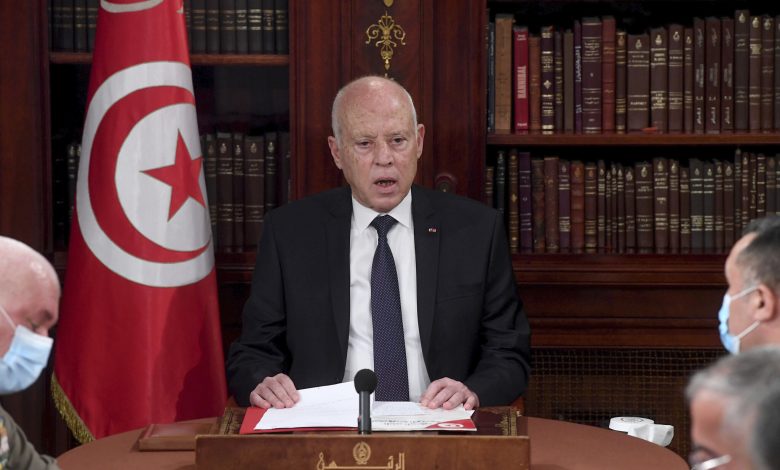Saied warns against the flow of suspicious funds outside state control – Tunisia

Tunisian President Kais Saied’s meeting with the governor of the Central Bank, Marwan Abbasi, at the Carthage Palace on Wednesday points to efforts to stop the flow of suspicious funds from abroad. There is continuous talk of violations in the past decade, including the parties and associations obtaining funds from external parties, away from the control of the Central Bank and the concerned monitoring bodies, which is prohibited by the law, and which the judiciary is currently working on examining.
The Tunisian Presidency confirmed in its statement that Marwan Abbasi presented the President of the State with the Bank’s financial statements for the year 2022 and the report of the accounts regulators.
The meeting dealt with, in particular, “the crucial role of the Financial Analysis Committee in identifying the sources of suspicious funds that have benefited and are still benefiting from, which are still benefiting suspicious entities, as it is no secret to anyone that money is flowing illegally. There is no room for those who benefit from it to remain without being held accountable or punished as required by law.”
Foreign funding for a number of parties in the past decade is one of the files opened or preparing to open by the Tunisian authorities after the exceptional measures taken by the Tunisian President to isolate the former ruling system led by the Islamic Ennahdha Movement. Meanwhile, lifting the political cover of this system, which the Tunisian President accuses of financial corruption and plundering of public funds, gives an impetus to efforts to contain the flow of suspicious funds outside official channels.
“Former central bank governor Chadli Ayari had warned in dangerous statements before leaving the bank in 2018 of uncontrolled financial flows through unofficial channels, but the judiciary, which was in part under the authority of Ennahdha, had not resolved those files, and many of them remained on the shelves.”
Former minister Mohamed Abbou also made explicit accusations against Ennahdha and its president Rached Ghannouchi after the fall of the government of Elias Fakhfakh, implicating them in money laundering through some of the movement’s affiliated channels, in reference to Al-Zaytouna channel. But the Islamic Movement denied this.
The authorities also seek to investigate suspicious funding of some associations, especially those close to political parties. During the campaign period, the authorities worked to support candidates, whether in municipal, parliamentary, or presidential elections, and to urge people to vote in return for financial or in-kind support and assistance.
Even though governments pledged to scrutinize the flow of funds to charitable associations before the extraordinary measures were taken, efforts were slow and faced many obstacles due to the unwillingness of the political authorities at those stages to uncover the truth and impede it.
-
International aid must start flowing to Turkey and Syria to save survivors from the rubble – Details
In 2022, the government of Najla Bouden amended the Societies Act, which was passed in 2011 after the revolution, especially regarding the funding point.
“The new decree prohibits associations from accepting aid, donations or grants from countries that do not have diplomatic relations with Tunisia or organizations that defend the interests and policies of those countries, and from accepting foreign aid, donations or grants that are not licensed by the Tunisian Committee for Financial Analyzes,” the amendment said.
Corrupt political money and foreign funds represented the biggest obstacle to Tunisian democracy, as they had caused the integrity of many of the elections to be targeted.












